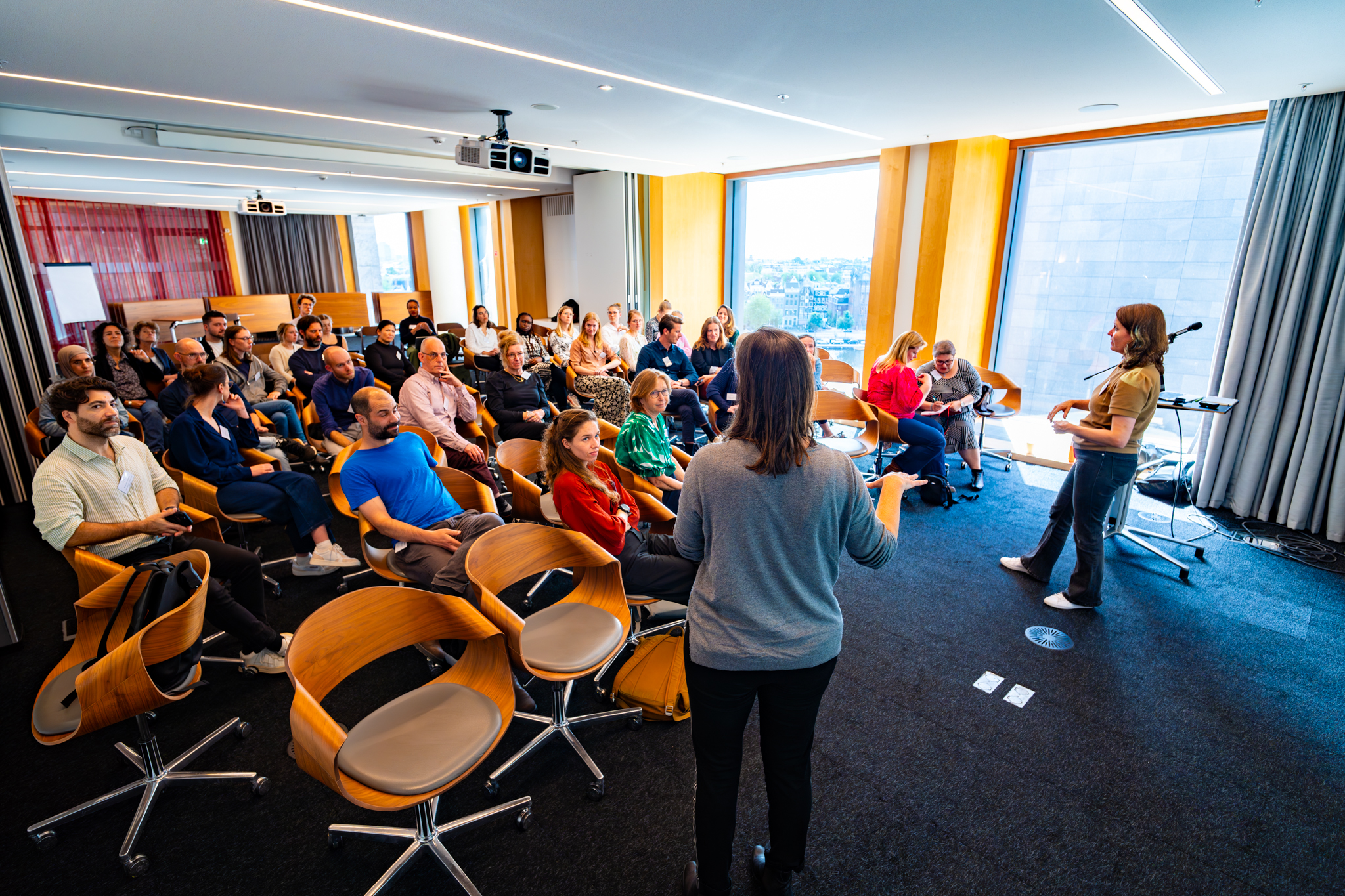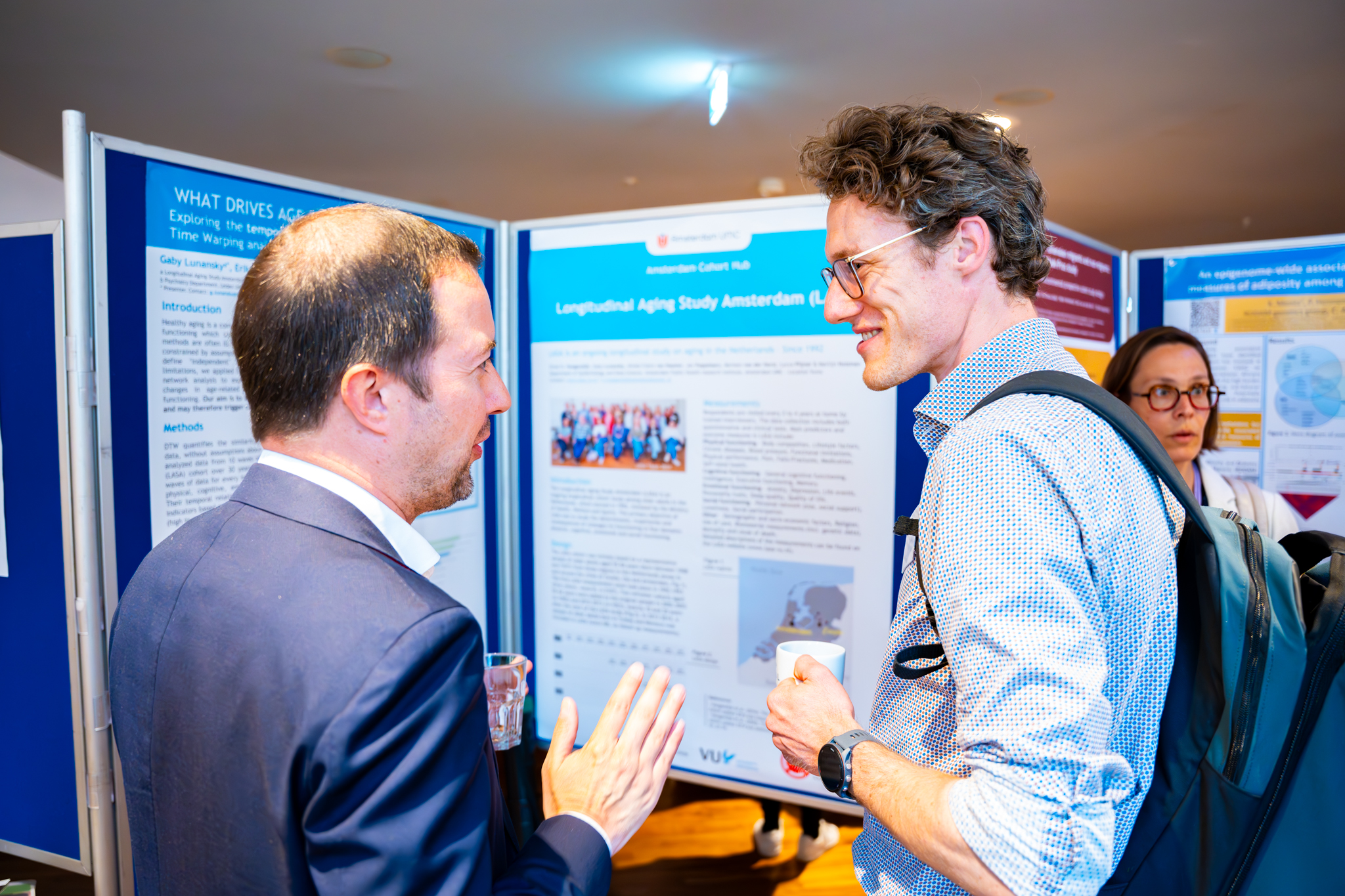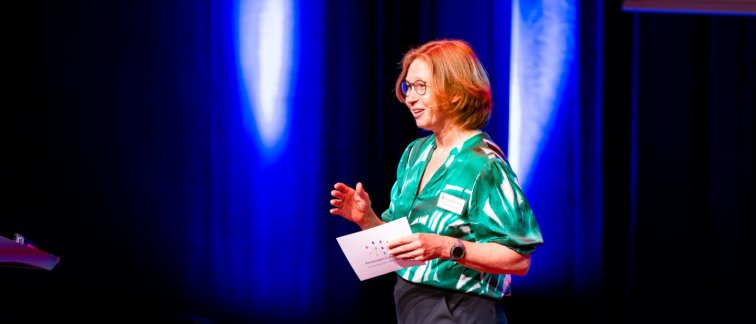Recently, the first 'Annual Cohort Conference Amsterdam' took place at the Openbare Bibliotheek Amsterdam. This conference highlighted the immense value of cohort research, FAIR data, and the impact of scientific results. Approximately 150 researchers, data stewards, data managers, field workers, and other stakeholders attended the event.
The conference was kicked off by Professor of Quality of Care and Director of the Amsterdam Public Health Research Institute Martine de Bruijne (see photo above). She provided an overview of all cohort studies associated with the Amsterdam Cohort Hub. These studies offer deep insights into health within diverse populations and help in reducing health disparities. The Amsterdam Cohort Hub is working on an active network, joint data infrastructure, central support, and improving data reuse. Additionally, the hub focuses on advocacy, PR, and valuable collaborations.
Keynotes
The afternoon continued with two keynote speakers who shared their experiences with cohort data and data linkage from registries. Assistant Professor of Psychiatry and Epidemiology Yuri Milaneschi spoke about his research on depression and genetics. One of his challenges is combining increasingly larger samples with the precise characteristics of the concept of depression. He referred to the BIONIC initiative, which aims to harmonize and integrate data from various cohorts. Postdoctoral researcher Mandy Spaan shared her experiences with enriching research data with CBS registry data in her research on assisted reproductive treatment.
Practical applications of cohort data
During various breakout sessions, attendees learned about different topics, such as the challenges and opportunities within cohort studies. Stefan Hermann (Research Data Management) and Casper de Boer (Alzheimer Center) presented the myDRE platform for researchers at Amsterdam UMC. They discussed the experiences with myDRE in the Alzheimer Center and possible improvements. This platform demonstrates how some cohorts are already actively sharing their data. Esther van Bisschops (Academic Center Viveon; AmsCIS) showed how she used registry data from a cohort study to evaluate the implementation of the Care and Compulsion Act in intellectual disability care.
Cohort data and policy making
One of the sessions highlighted the connection between research and policy, showing how cohort data can contribute to policy making. General practitioner Katinka Prince presented how GPs are organized and how well-being and care organizations within Amsterdam Vitaal & Gezond collaborate with the local government and health insurers.
AI and co-creation in cohort research
Professor Mark van de Wiel and Thanos Angelakis (Epidemiology & Data Science) discussed the application of AI in cohort studies. They showed how AI can contribute to new insights, with examples from the HELIUS and ABCD studies. Sander Begeer (Clinical Developmental Psychology, VU Amsterdam) provided inspiring examples of co-creation in the Nederlands Autisme Register, where participants are actively involved in research and education.
Legal aspects of data sharing
What impact does the GDPR legislation have on a scientist's work? Data Protection Officer at NKI-AVL Irith Kist discussed the legal challenges in data sharing, focusing on the GDPR legislation. She emphasized that the GDPR, when well implemented and interpreted, does not hinder scientists.
The conference concluded with a reflection on this first edition and the initial phase of the Amsterdam Cohort Hub, along with a first impression of the shared data catalog.
Want to know more?
Interested in the Amsterdam Cohort Hub? Sign up for the newsletter or request more information via cohorthub@amsterdamumc.nl. Also, visit the Amsterdam Cohort Hub webpage.



